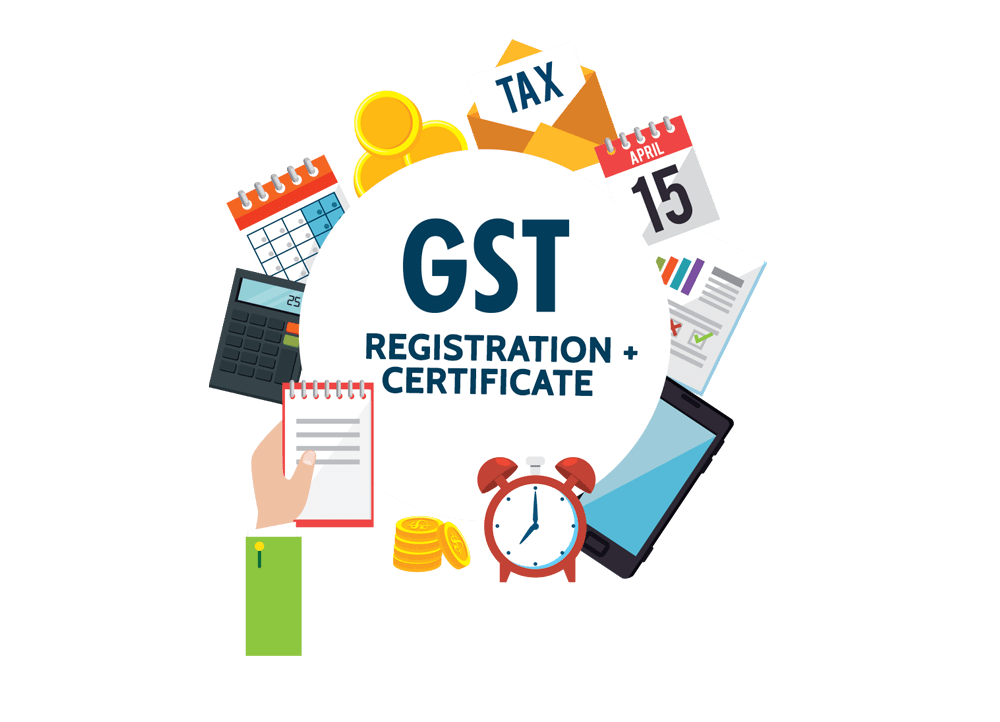From Beginning To End: A Detailed Summary of GST Enrollment and Exactly How to Successfully Register Your Business
Browsing through the complex procedure of GST enrollment can be an important action for any type of organization wanting to develop compliance and authenticity on the market. Why choose CFO Account & Services for GST registration in Singapore. From recognizing the fundamental principles of GST to meeting the qualification criteria and gathering the essential documents, the trip towards effective registration can typically appear like a complicated job. However, with the right guidance and insights, organizations can streamline this procedure and unlock the advantages that feature being a registered entity.
Understanding GST and Its Relevance
Understanding the Goods and Solutions Tax (GST) and its relevance is essential for services running in economic situations where this taxation system is implemented. GST is a value-added tax obligation levied on the supply of services and goods, designed to enhance the indirect taxes framework. It changes numerous plunging tax obligations levied by the state and central governments, creating a unified market across the country. Among the essential benefits of GST is the elimination of the cascading effect of tax obligations, resulting in boosted performance in the tax obligation system. By enabling services to declare input tax credit ratings on the tax paid on acquisitions, GST makes sure that taxes are computed just on the worth added at each stage of the supply chain.
Moreover, GST promotes conformity and openness in the tax regimen, minimizing tax evasion and enhancing government earnings. It simplifies tax obligation administration and conformity for organizations by supplying a common system for tax declaring and payment. In general, a detailed understanding of GST is important for businesses to successfully navigate the complexities of the tax system and make sure compliance with the legislation.
Qualification Criteria for GST Registration
To sign up for GST, organizations must meet specific eligibility standards laid out by the tax obligation authorities. The key need for GST enrollment is that the organization's accumulated turn over goes beyond the limit established by the government, which varies by state. Additionally, certain companies, such as those involved in inter-state supply of goods or solutions, informal taxed persons, and non-resident taxed individuals, are needed to register for GST regardless of their turn over.
Furthermore, organizations entailed in providing products or services through e-commerce platforms are additionally mandated to sign up for GST, regardless of their turn over. Companies that were registered under the previous tax obligation routine, such as VAT, import tax task, or service tax, have to change their registration to GST. Following these qualification requirements is critical for services seeking to abide by the GST policies and stay clear of any fines for non-compliance.
Files Needed for GST Registration
Furthermore, files validating the identity and address of the promoters or companions entailed in the service, such as frying pan card, Aadhaar card, or key, are vital for GST enrollment. Savings account statements or canceled cheques showing the name of the address, account, and service number are additionally obligatory to verify the savings account information given during registration.
Ensuring all the necessary records remain in order and conveniently offered will certainly enhance the GST registration procedure and aid companies stay clear of issues or delays.
Online Registration Process for GST

After completing the form, supporting documents require to be published according to the guidelines supplied. These files typically consist of proof of company registration, address evidence, financial institution declarations, and identification proof of the business proprietor. It is vital to make sure that all records are clear, legitimate, and submitted in the defined format to prevent hold-ups in the registration process.
When the application and records are submitted, organizations can track the status of their GST enrollment online. If there are no concerns or extra details required, the GST registration certification will certainly be issued online, marking the effective conclusion of the online registration procedure.
Post-Registration Compliance and Tips

Additionally, organizations need to maintain appropriate account books, including billings, accounting documents, and financial statements, to sustain the information provided in GST returns. Regular audits and reconciliations ought to be carried out to make sure information accuracy and compliance with GST laws. Additionally, services need to remain upgraded on any type of modifications in GST guidelines, rates, or compliance procedures to make required modifications quickly. Looking for professional help from tax consultants or accounting professionals can also help organizations browse complex GST conformity needs successfully. By staying aggressive and vigilant in post-registration compliance, companies can stay clear of charges, preserve excellent standing with tax obligation authorities, and foster operational you could try these out effectiveness.
Verdict
To conclude, the process of GST registration is important for businesses to follow tax policies and run legally. Going Here By recognizing the eligibility requirements, collecting the required records, and completing the on the internet enrollment procedure, companies can efficiently register for GST. When required to ensure smooth operations., it is essential to remain certified with post-registration needs and seek expert advice (Why choose CFO Account & Services for GST registration in Singapore).
Businesses that were registered under the previous tax program, such as VAT, excise duty, or service tax, have to transition their registration to GST. The crucial records needed for GST enrollment consist of evidence of organization enrollment or unification such as the Certificate of Incorporation, partnership deed, or registration certificate.Upon successful conclusion of the GST enrollment procedure, organizations have to without delay stick to post-registration conformity demands to preserve regulative compliance and guarantee smooth operations.In conclusion, the process of GST registration is crucial for services to comply with tax regulations and run legitimately. By comprehending the eligibility criteria, gathering the essential records, and finishing the on the internet registration procedure, organizations can efficiently register for GST.
Comments on “How CFO Account & Services Can Streamline Your GST Registration Refine in Singapore”